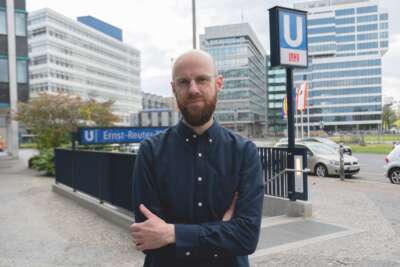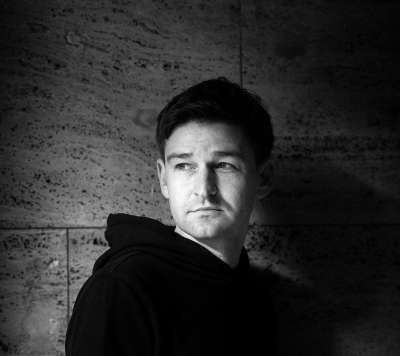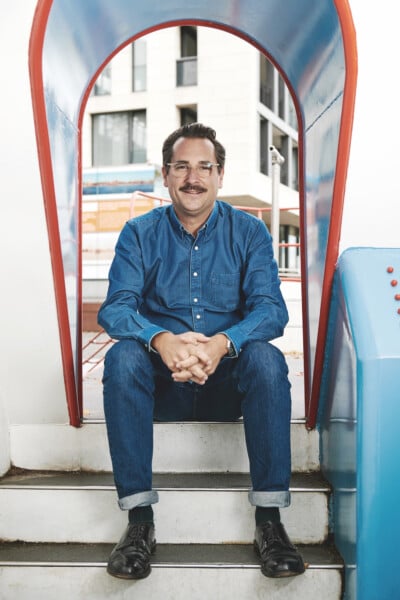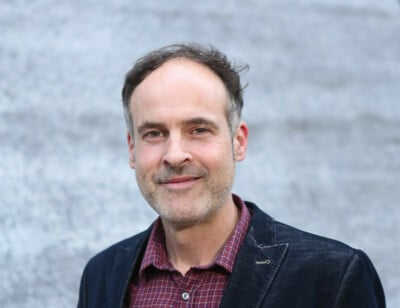Climate-Friendly Snacks

- Julia Collins, Cofounder of the Unicorn company
- Photos: Moonshot

Californian Julia Collins shot to tech stardom as the first Black woman to co-found a unicorn company when Zume Pizza was valued at over two billion dollars. Inspired by her son’s birth to tackle the climate crisis, she created Planet FWD, and Moonshot Snacks, the first “explicitly climate-friendly” snack brand. Planet FWD is her way to support climate-friendly food companies with software that helps them better calculate carbon emissions and source ingredients grown with regenerative agriculture practices.
Julia Collins talked to Radar about the challenges in making climate-friendly products widely accessible, future food trends, and one thing in food that will never change.
What’s the origin of your special connection with food?
It goes all the way back to growing up in San Francisco, California. My grandparents migrated there from the Deep South during the Great Migration when millions of Black people moved for new economic opportunities. It was also the time of segregation and my grandparents were dentists. In their practice, everyone was welcome, from every race and every walk of life. Dancers, musicians, bankers, construction workers. When that equality and openness is the drumbeat of your life,
that extends to your home and your table. So just as everyone was welcome at their dental practice, everyone was welcomed at home. And as they believed all people are equal, they believed all people are equally worth serving. And to serve people is to serve them through food. So I always felt this deep spiritual connection with food.
If you were to wander to my house after high school, we didn’t lock our door, you could just wander right in. And before you set two feet into the house, someone would say: “You look hungry, come into the kitchen.” And what you would find in the kitchen invariably was a big pot on the stove, with tons of vegetables probably grown by my grandfather in his garden.
You co-founded Zume Pizza, that was valued at 2.2 billion dollars, but have since moved on. Could you touch upon its success?
We were so committed to solving the problems plaguing our food system. We were deeply concerned about rising diabetes and obesity. We were deeply concerned about the working condition of food workers – many couldn’t earn a living or have health benefits, really basic human rights. We were deeply concerned about the condition of our food systems and long supply chains, and not only human health but environmental health. And so I think part of the success in the early days was related to the fact that we were audacious in our vision. We believed we could solve not just one problem, but use technology to solve the biggest problems plaguing food systems everywhere. So I think it was this scope of vision that was related to our successful fundraising.
Moving onto Moonshot, what was the genesis of your climate-friendly snacks brand?
I have always thought of myself as a plant-forward eater. I was always a conscious eater, for personal health, for my and my family’s bodies. Giving birth to my son gave me this neuroplasticity. For me, it was brought on by motherhood, for others it’s a breakup, moving country, a big job. But we all have these big moments where we rethink our relationship to just about everything. For me, it was natural to rethink my relationship with food. I was sitting with a friend at a café, and I said I want to be more than a plant-forward eater, I want to be a “planet-forward” eater. I want to make all my food choices and life choices in accordance with the kind of planet that I want. And so I nicknamed myself a climatarian.
How does “climatarianism” relate to your company initiative?
I try to buy almost all my food at farmer’s market. And what I can’t get there, I source from a plastic-free grocery company, called Zero Grocery. So that’s one of these choices you can make as an individual. But the reason for creating Moonshot was: how could I amplify that across a neighbourhood, across a region, a country, and maybe even globally? I began to think about the power of software and how a product could
cause rapid adaption to new thinking and new practices. I actually think we have to unlearn just about everything we’ve been taught. We have to think of totally new models. At the same time we have all this infrastructure in place. It’s not completely changing the pipes, but getting new information to flow through.
Why start with snacks?
Snacks is actually reported to be a $605 billion industry. 95% of Americans snack every day, and particularly post-COVID, snacks make up the majority of calories in an American’s diet. So we thought by making Moonshot in a snack category, we could bring people’s attention to being climate-friendly. Moonshot is not just another tasty cracker, it’s the first explicitly “climate-friendly” product in the category. We’ve focused on our consistency of messaging to create a movement. The idea was not just about one product but creating a movement to allow more and more eaters to change to drive the impact we need.

With Moonshot you aimed to understand the carbon footprint of every ingredient, and use regenerative farmers (agriculture integrating carbon capture techniques). Difficult task!
Creating Moonshot was challenging from a data and information perspective. We wanted to source ingredients from regenerative farmers but had no tool to make this possible. There was no database in existence. So we decided to create software to solve the problem. What we’re doing now with Planet FWD is about powering the next generation of food entrepreneurs that want to help save the planet in this decade. And we do that using a software solution that helps our customers understand their climate footprint. We can help you understand your existing carbon footprint, and share ways you can make improvements to the overall sustainability of your product. Our software also helps by connecting our customers with ingredients grown by regenerative farmers, and materials that are lower impact.
So you’re now sharing the tech created for Moonshot with those wanted to do similar.
Yes. And the good thing is there are many people who want to do it. Consumers are demanding more from brands. To capture new customers and new markets, they need to show how their products are better for you, and how they’re better for the world and the climate. But the problem is although the intention is there and the customers are there, the infrastructure is not there. Planet FWD is speeding that path to market. It’s difficult for brands to really know how to quantify their Scope 3 emissions. More broadly, they don’t have internal resources to accurately measure their carbon footprint. We’re pushing to provide this because every brand has the right to know this data – so they can be part of the solution.
What future trends do you see in the global food sector, on both realistic and idealistic levels?
My team accuses me of being both a realist and an idealist [laughs]. I see a future where greenhouse gas emissions are accounted for across the value chain. We’ll see carbon labelling become the norm. That can
happen in the next few years, it’s a big trend. Then, I’m increasingly inspired by the growth of amazing tasty plant-based options. I see a future where people increasingly choose a plant- or planet-based diet.
I see that happening. I think brands that are making flavour a priority will get the furthest. Consumers no longer have to trade delight for impact. I also believe regenerative agriculture and climate-friendly growing are increasingly important to consumers, and to retailers, actually. I also see a near future where retailers dedicate portions of their store to regenerative agriculture, in the same way you see gluten-free, etc. now.
What will always stay the same in food?
It’s got to taste great! If you want to change the world, change food. Butn the food has to be delightful. You have to deliver on pleasure and joy and flavour.
What’s exciting in your work going forward?
On the Moonshot side of things, we’re going to be the first product in the snack category that has a land acknowledgement on the package. As much as we talk about regenerative agriculture, we should be talking about indigenous practices of managing and being connected with land. Regenerative practices stem from their wisdom. Although indigenous people are just 5-6% of the global population, they protect 80% of biodiversity. So we’re beginning to message the importance of knowing whose land you’re on. That’s one of the ways we can begin to honour land sovereignty.
On the Planet FWD side, we’re excited to be going to market with the most accurate tool to quantify carbon emissions at the product level. We’re helping brands becoming razor sharp about carbon impact so they can make improvements.












